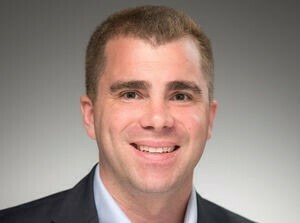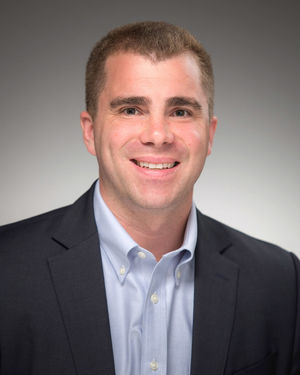

ND Energy Faculty Luncheon Seminars are held monthly with interested faculty to facilitate cross-disciplinary research collaborations and to enable development of proposal ideas for upcoming funding opportunities. All interested faculty from diverse fields are invited to attend.
The discussion topic for this luncheon will be centered around a presentation by Prof. Casey O'Brien on "Catalytic 'Leaves' for Integrated CO2 Capture and Conversion: Towards Artificial Carbohydrate Synthesis."
This 35-40 minute talk will be followed by discussion with Prof. O'Brien focused on (1) cross-disciplinary basic research needs, (2) potential avenues for external and internal collaborations, (3) funding sources to target, and if everyone is agreeable, (4) 'follow-up actions' that we can track. With all the faculty engaging in the discussion part of this luncheon after the talk, we expect to have a very stimulating and inspiring exchange of ideas.
For more information on the ND Energy Faculty Luncheon Seminars, contact Subhash L. Shinde at sshinde@nd.edu.
Abstract
The agriculture industry relies on photosynthesis to supply the world’s population with macronutrients (i.e. carbohydrates). However, industrial agriculture requires extensive land use (about half of the global habitable land) and significant water resources (about 70% of global freshwater). Industrial agriculture also causes massive air and water pollution: the food and agriculture industries are responsible for ~26% of global greenhouse gas emissions and ~76% of water pollution from nitrogen fertilizers [1]. A recent study funded by the Food and Agriculture Organization of the United Nations [1] estimates that these environmental impacts (natural capital) cost more than the production value of the crops. Thus, industrial agriculture is also economically inefficient. The world’s rapidly growing population and climate change will exacerbate these environmental and economic problems, leading to more pollution and more malnutrition around the world.
In this talk, I will discuss a catalytic membrane technology we are developing that could enable synthetic carbohydrate (glucose) synthesis from atmospheric CO2 and H2O. The catalytic membrane contains multiple functionalities to (1) capture CO2 selectively from dilute streams such as air and facilitate CO2 transport across the membranes via carbamate/bicarbonate species, and (2) to catalyze conversion of CO2 to value added chemicals such as formic acid (HCOOH), which is a precursor to glucose synthesis. This artificial carbohydrate synthesis process could scale to gigatonne levels to increase the agricultural capacity of the planet by orders-of-magnitude, reducing malnutrition from food scarcity in developing nations. It would also reduce the amount of water for crop irrigation by orders-of-magnitude, reducing global water scarcity. The process also does not require fertilizers, pesticides, or herbicides, which would reduce water pollution from nitrification. The process would also potentially capture gigatonnes of CO2 from the atmosphere annually while reducing greenhouse gas emissions from agriculture. Thus, the process would have a substantial global impact at the food-water-energy-environment nexus.
[1] Natural Capital Impacts in Agriculture, Food and Agriculture, Organization of the United Nations (2015).
Originally published at energy.nd.edu.